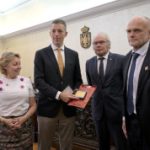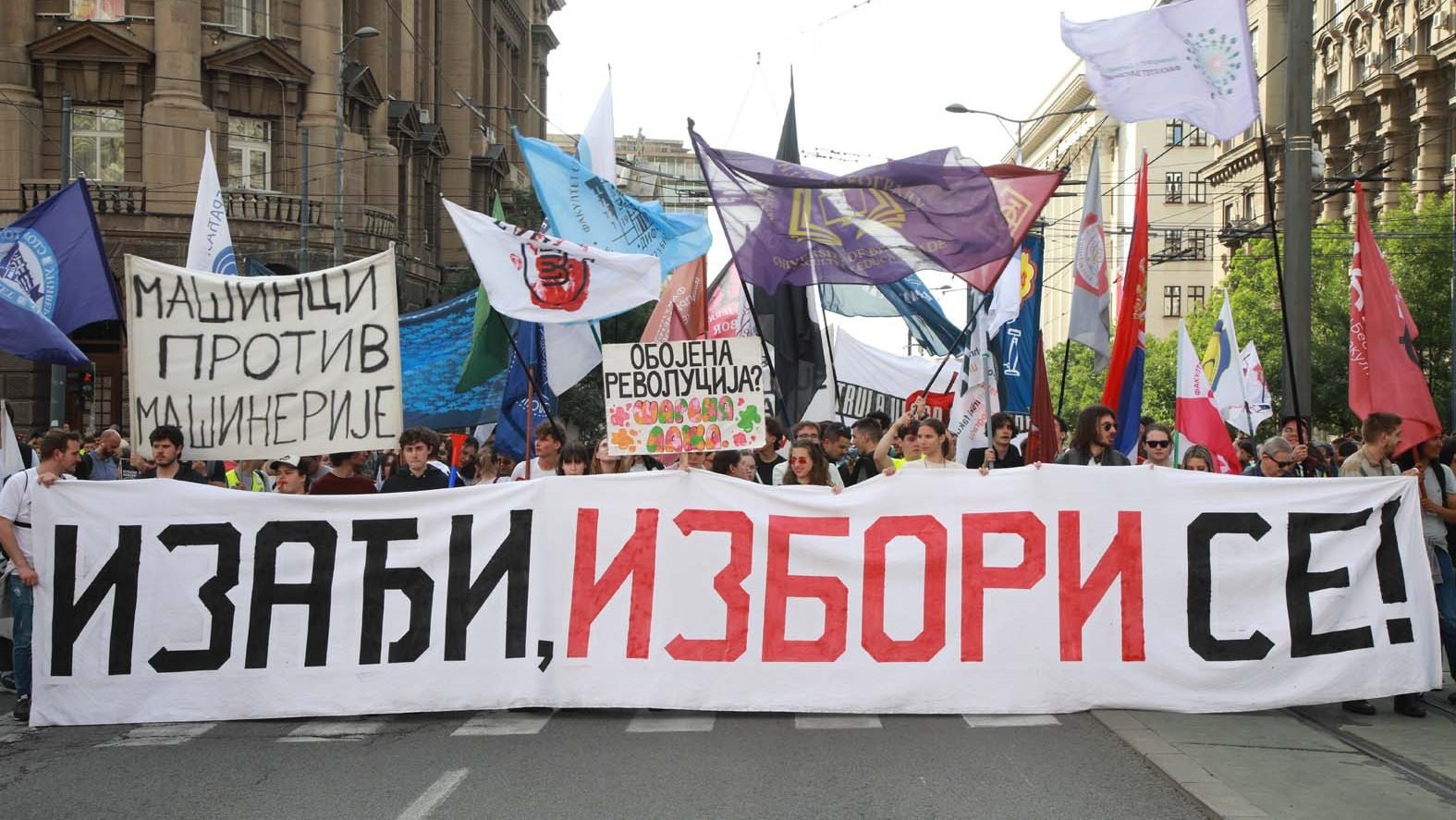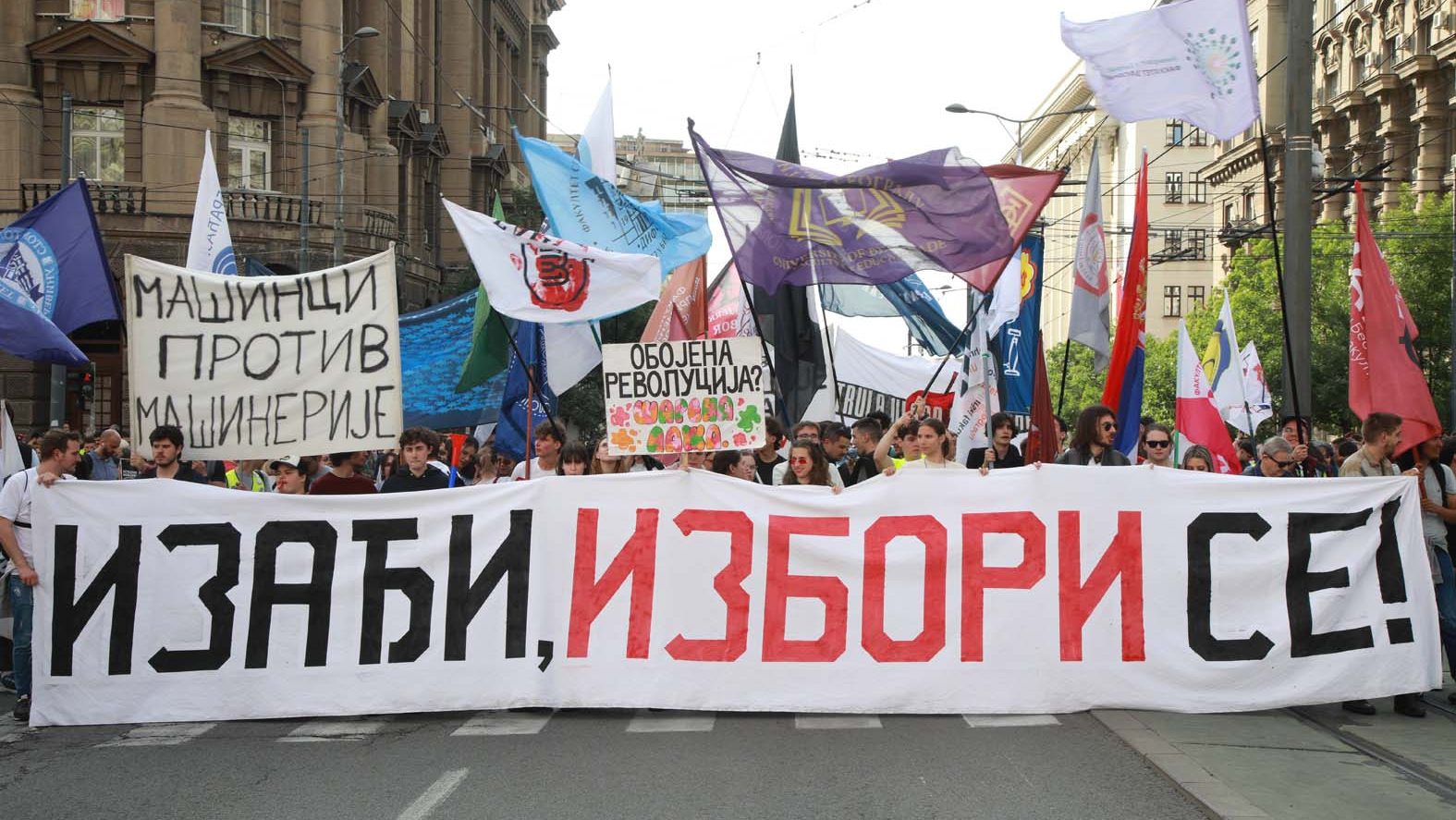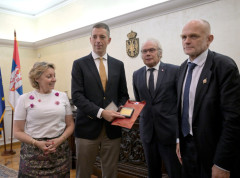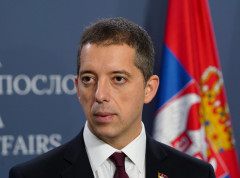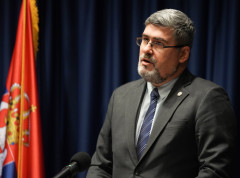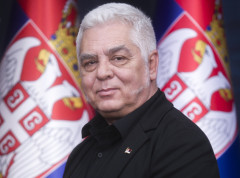The Student Movement at a Crossroads: Stay Spontaneous or Become a Political Machine?
Is it time for the student movement, which has shocked Serbia over the past seven months with its persistence and massiveness, to move from street protests to a formal political organization? This question divides experts and the protesters themselves.
Spontaneity: Strength or Weakness?
The student movement already has an internal structure — plenums, working groups, decision-making procedures. But formal registration as a citizens’ association or even a political party is not yet on the horizon. Some argue that the lack of formalities gives the movement its strength and authenticity. Without a formal leader, the movement is direct democracy in action, a rarity in today’s world.
But what if it formalizes?
Jelena Vasiljević, a senior research associate, believes institutionalization is necessary, especially if students plan to run in elections. Without a formal structure, there is no legal framework for political activity. On the other hand, political analysts warn that premature party formation could be counterproductive — the regime might interpret it as the end of street protests and declare victory.
The Regime and Repression: Adding Fuel to the Fire
Aleksandar Vučić and the authorities are not resting. Increased repression, arrests, attempts to sow discord among students and the opposition — these are tactics the regime uses to crush the movement. Yet, students continue to mobilize society impressively, which is a nightmare for the authorities.
What Does the Future Hold?
It is possible that during the next academic year, ahead of elections, some students will reduce daily activism and delegate leadership to an organizational core. This would mean restructuring and formalizing the decision-making process, but this is still hypothetical.
Conclusion: Between the Streets and Politics
Today, the student movement is a symbol of resistance and direct democracy. Formalization could bring efficiency and political capability but also risks losing authenticity and the power of street protests. As the regime intensifies pressure, the question remains — will students manage to preserve their identity and continue the fight, or will they retreat into political frameworks?
Either way, this is just the beginning of a big story. What do you think — is it time for a political party, or is street protest the only real way? Drop a comment, let’s hear the people’s voice loud and clear!

